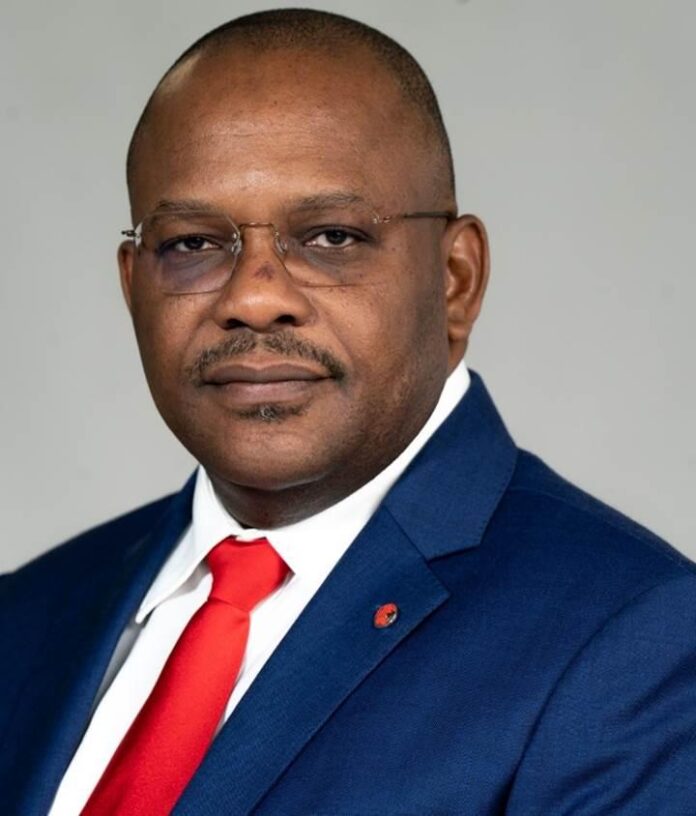The global push for energy transition is limiting the level of financing available to oil companies, CEO, Heirs Energies, Osa Igiehon has said.
Energy transition talks about moving predominantly from one source of energy to another source of energy.
He said that oil has been a blessing for Nigeria, it could have been more of a blessing, and could be a bigger blessing. He said Nigerians are resilient, with great capacity to confront challenges.
Speaking during an interview with Financial Times, in the film titled “Nigeria’s Struggle to Break the Oil Curse”, he said Heirs Energies remains a leading indigenous energy company and has been prominently featured in a recent Financial Times film titled “Nigeria’s Struggle to Break the Oil Curse.”
The film explores the challenges and opportunities within the nation’s energy landscape, highlights the transformative role of Heirs Energies and Igiehon.
During his interview, Igiehon detailed Heirs Energies’ substantial contributions to Nigeria’s energy sector. The company now manages approximately five per cent of the Nigeria’s oil production and a similar share of its domestic gas production.
He said the achievement is particularly noteworthy given the recent trend of international oil companies exiting onshore operations in Nigeria, creating opportunities for capable indigenous firms to fill the void.
Igiehon said Heirs Energies has demonstrated remarkable operational excellence since acquiring the OML 17 block in July 2021.
“Within just 100 days of taking over operations, the company doubled its oil production from 27,000 to 52,000 barrels per day. This rapid improvement serves as compelling evidence of the capacity and resilience of indigenous companies in the sector,” he said.
Igiehon further addressed the challenges faced during the transition period, particularly the issue of oil theft in the Niger Delta region.
Through strategic initiatives and collaboration with key stakeholders, Heirs Energies has made significant strides in overcoming these obstacles. The company has increased its terminal delivery from 3% in December 2021 to an impressive 85% today, showcasing its problem-solving capabilities and commitment to operational integrity.
The CEO stated that the success of Heirs Energies aligns with the principles of Africapitalism, which positions the private sector at the forefront of investments that drive both economic prosperity and social progress. By demonstrating that indigenous firms can not only match but exceed the performance of international operators, Heirs Energies is setting new standards for local participation in Nigeria’s oil and gas sector.
The feature in the Financial Times not only highlights Heirs Energies’ achievements but also underscores the company’s commitment to driving Nigeria’s economic growth, ensuring energy security, and paving the way for a new era in the country’s energy sector – one driven by local expertise, innovation, and a deep understanding of Nigeria’s unique challenges and opportunities.
The country should be in the position to produce two to 2.5 million barrels per day. Today, we are only able to produce somewhere in the range of 1.2 to 1.5 million barrels over a day. There are a number of positive factors, but the biggest is the theft.
The second challenge is then the point of investment. Because of the theft, it has created a scenario where there has been a stifling of investment in the sector.
Thirdly, there is a global push for energy transition that has made getting financing for oil and gas, more challenging. We took over operational control from the previous operator in July of 2021 we essentially doubled our oil production in 100 days, from 27,000 barrels to 52,000 barrels of oil per day. But we noticed very quickly.
That’s why, as we are trying to ramp up production, what was getting to the terminal was declining in December of 2021 we only got 3% of our production at the terminal.
Today, we now get an average of 85% of our production. So lots of appreciation to the government for the steps and very decisive steps they have taken and sustained to secure the pipeline. Nigeria is usually the biggest producer in Africa. The
So Africa positions private sector in the lead of making investments to improve lives, making substantial prosperity and at the same time creating social work. It talks about profits and it talks about impact.


